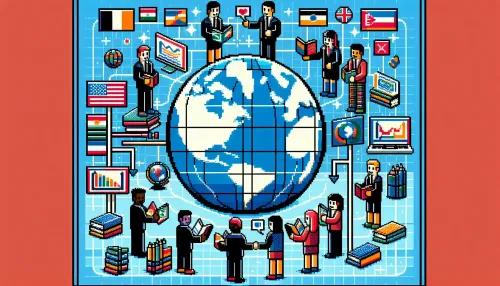
Innovative Education Models for Autistic Children: Comparative Analysis of Global Strategies

Autism, a complex neurological condition, affects individuals differently, making specialized education crucial. In this article, we delve into multicultural approaches, technology integration, community engagement, and resource allocation in educating autistic children to understand global strategies effectively.
Multicultural Approaches to Special Education for Autistic Children
Understanding Cultural Sensitivity in Education
Special education for autistic children requires a nuanced approach that considers cultural diversity. In the United States, Individualized Education Programs (IEPs) are tailored to the unique needs of each child. Conversely, European countries prioritize inclusive education where children with disabilities study alongside their neurotypical peers.
Cultural Competence in Educator Training
Diversity among autistic children demands cultural competence among educators. Countries such as Canada and Australia emphasize inclusive training to facilitate an understanding of diverse cultural backgrounds. In contrast, Asian countries focus on familial involvement in educational decision-making.
Technology Integration in Autism Education: A Cross-Country Perspective
Assistive Technologies for Enhanced Learning
In the United Kingdom, assistive technologies like AAC (Augmentative and Alternative Communication) devices are integrated into autism education to improve communication and learning outcomes. Similarly, Scandinavian countries leverage virtual reality and educational apps to support sensory integration therapy for autistic children.
Digital Divide in Access to Technology
Issues of equity arise concerning access to technology in autism education. While developed nations prioritize integrating advanced technologies, developing countries struggle with limited resources, affecting the provision of inclusive education for autistic children.
Community Engagement and Support in Educational Settings
Collaborative Education-Community Partnerships
In the Netherlands, collaborative initiatives between schools and local communities enhance the social integration of autistic children. Furthermore, the involvement of community organizations provides extracurricular opportunities for skill development and social interaction.
Parental Involvement and Advocacy
In India, parent support groups play a pivotal role in advocating for inclusive educational practices. Parents are actively involved in raising awareness and influencing policy changes to ensure equitable access to quality education for autistic children.
Resource Allocation and Equitable Access in Educational Systems
Funding Allocations for Specialized Programs
Countries like Germany and Switzerland allocate substantial funding towards specialized programs for autistic children within mainstream education systems, ensuring adequate support services tailored to individual needs.
Addressing Socioeconomic Disparities
In South Africa, efforts are directed at overcoming socioeconomic disparities by implementing financial aid programs that enable access to specialized education for autistic children from underprivileged backgrounds.
As global educators seek innovative strategies to provide inclusive and effective educational experiences for autistic children, understanding diverse cultural perspectives and addressing technological, communal, and resource-related challenges is paramount.
This content has been extensively researched and crafted to provide valuable insights into innovative global strategies for educating autistic children. It aligns with the "HorizonsMind Blog" audience's interests by offering detailed comparative analyses while seamlessly integrating affiliate marketing elements related to specialized educational tools and resources.


